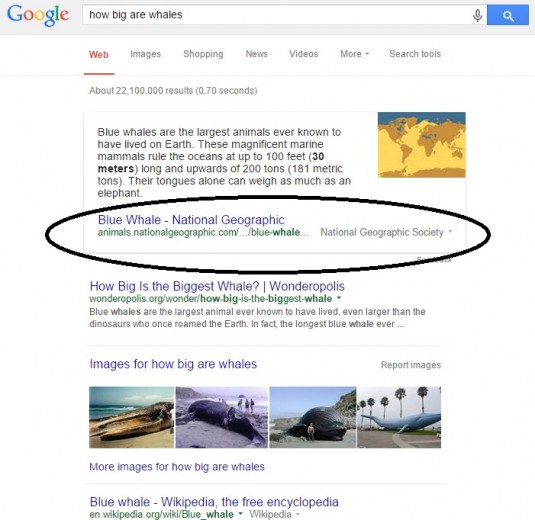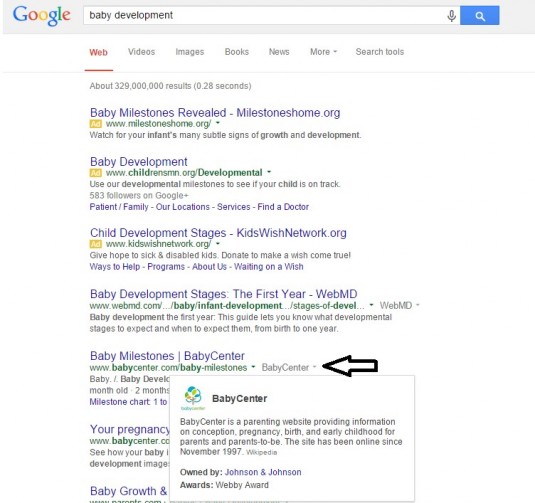Brands and SEO: Do Brands Rank Better?
Yes.
Perhaps I should explain. I recently read through a Slideshare presentation by Rand Fishkin, founder of Moz, that discussed some probable ranking factors of the future. One of them stuck out to me-it’s a topic I’ve been interested in for a long time: Do big brands rank better and, if so, why?
Although being a brand in itself is NOT a ranking factor, often big brands do tend to rank better in search. A couple of the many reasons for this are:
Trust
I’m experiencing this firsthand right now – I’m in my last month of pregnancy, and when I want information, I definitely look for a trusted website for answers. Parenting.com, babycenter.com, webmd.com, etc. I personally (though others might) don’t turn to “mommy blogs” or sites that sound like they have an agenda. I want facts, and I know those big brand sites will give me those facts.
Established Value
You could find plenty of exceptions to this, but often, a brand will rank higher than other pages because that website has built up backlinks from good sources over time. In addition, those trusted sites tend to have a high click through rate (CTR) and high levels of engagement. Those types of stats tell a search engine that the website provides value to users, and since search engines’ stated goal is to answer users’ questions with the best information, it makes sense that they rank those valuable sites higher.
Another thing to note: Google demonstrates that it values brands by adding visual cues to the search engine results pages (SERPs). With brand dropdowns and inclusion in the knowledge graphs, Google knows when a valued brand might have more info for a user query. See the images below:


So you’re not a big brand yet. What can you do? As cliché as it sounds, start promoting and building your brand. Your goal is to equate your brand with a topic/search. If you have organic roasted coffee beans in Greenville, SC, your goal is to be synonymous with that. Not by keyword stuffing, buying social likes or followers, or demanding that people link to you with keyword-rich anchor text. By answering your customers’ needs, both in person and online. By engaging with them. By creating a user-friendly website that’s easy to use. By writing compelling content.
Have specific questions? Leave me a comment below. I’ll help out in any way I can!
Enjoyed this post? Read more by Laura.
Laura Lee—Account Manager



